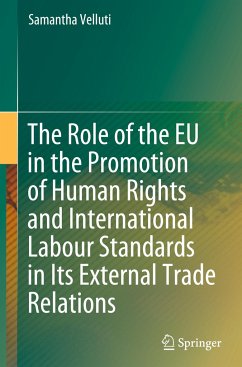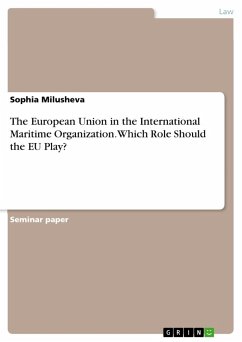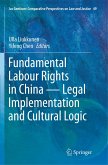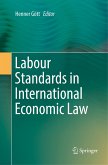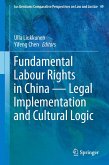This book represents a significant and timely contribution to the copious literature of the EU as a global actor providing new insights and fresh perspectives into the promotion of human rights and international labour standards in the EU's external trade relations, building on and stimulating further - the already well-engaged - scientific dialogue on this area of research. In particular, it provides the basis for developing a new analytical structure for better understanding the role of the EU in promoting human rights and international labour standards in global trade and, in particular, for assessing the extent to which and how normative considerations have influenced the adoption of EU legal instruments and policy decisions.
This book will appeal to research scholars, post-graduate students, practitioners and human rights activists.
This book will appeal to research scholars, post-graduate students, practitioners and human rights activists.

